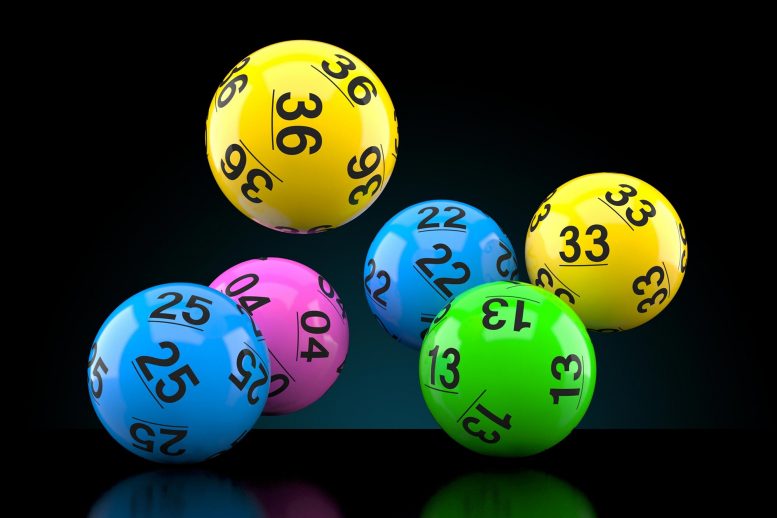
Researchers found Ohio’s “Vax-a-Million” lottery incentive did not increase COVID-19 vaccinations.
Would you be more willing to get vaccinated against the COVID-19 virus if you could participate in a lottery for cash and prizes? The answer was surprisingly no, according to Boston University School of Medicine (BUSM) researchers who found that Ohio’s “Vax-a-Million” lottery-based incentive system, intended to increase COVID-19 vaccination rates, was not associated with an increase in COVID-19 vaccinations.
Prior reports in the media had suggested that the Ohio lottery increased COVID-19 vaccinations, leading other states to use COVID-19 vaccine incentive lotteries in an attempt to increase slowing vaccination rates. “However, prior evaluations of the Ohio vaccine incentive lottery did not account for other changes in COVID-19 vaccination rates in the United States, such as those that may have been due to expansion of vaccination to ages 12-15,” explained corresponding author Allan J. Walkey, MD, MSc, professor of medicine at BUSM.
Using data from the U.S. Centers of Disease Control to evaluate trends in vaccination rates among adults 18 and older, the researchers compared vaccination rates before and after the Ohio lottery versus other states in the U.S. that did not yet have vaccine incentive lottery programs. Vaccination rates in other states served as a “control” for vaccination trends measured in Ohio, allowing the researchers to account for factors besides the Ohio lottery (such as expanding vaccine eligibility to adolescents) throughout the country.
“Our results suggest that state-based lotteries are of limited value in increasing vaccine uptake. Therefore, the resources devoted to vaccine lotteries may be more successfully invested in programs that target underlying reasons for vaccine hesitancy and low vaccine uptake,” said Walkey, a physician at Boston Medical Center.
The researchers believe identifying interventions that can successfully increase COVID-19 vaccination rates is a critical public health issue necessary to curb the pandemic. “It is important to rigorously evaluate strategies designed to increase vaccine uptake, rapidly deploy successful strategies, and phase out those that do not work,” Walkey said.
Although Walkey and his colleagues were sorry to see that state lottery incentives were not associated with an increase COVID-19 vaccinations, they hope their findings will lead to a shift in focus away from ineffective and expensive lotteries, and on to further study of other programs that may more successfully increase vaccine uptake.
Reference: “Lottery-Based Incentive in Ohio and COVID-19 Vaccination Rates” by Allan J. Walkey, MD, MSc; Anica Law, MD, MS and Nicholas A. Bosch, MD, MSc, 2 July 2021, Journal of the American Medical Association.
DOI: 10.1001/jama.2021.11048
Allan J Walkey was funded by NIH R01HL139751, NIH R01HL151607, NIH R01HL136660, and NIH OT2HL156812-01. Anica C Law was funded by NIH K23HL 153482. Nicholas A Bosch was funded by NIH 1F32GM133061-01.









Oh no it’s worse than that, it gives the exact opposite effect, it’s interpreted as a compensation for the risk or even some kind of bribing. It raises big red flags because the choice here should be based on a positive health outcome and not signing in for a prize.
Same goes for giving fast food and alcoholic drinks…
They really needed to find a gaming actuary to help build that out.
I had to go look at McDonald’s Monopoly for fast food, and apparently it’s associated with just over a 3% in sales increase. I didn’t see if that’s new sales, customer loyalty or maybe upsizing to get more properties.
Introducing the lotto late may have hurt the states as well, since it does give the impression that late people get rewards and early adopters get nothing. It doesn’t matter if an equivalent game is set up to accommodate early people, it’s already apparent that this is an afterthought and you won’t be able to find anyone who can convince early adopters that the two are equal or better. One governor gave a few rich communities with big donors a way to jump the line, and no matter how those deals operated, it very much looked like a pay-to-win game that was taking cash for donations and you’d need to save up if you wanted that vaccine that was supposed to be free.
Hi. For me, there is no easier and simpler hobby than sports betting. It’s always fast and fun, I really like it. I sit on the website of a trusted bookmaker https://1xbet.ug/ and every week I get a decent amount of money. And yes, I find it a very productive hobby. So you can also try betting on your favorite sport. Good luck.